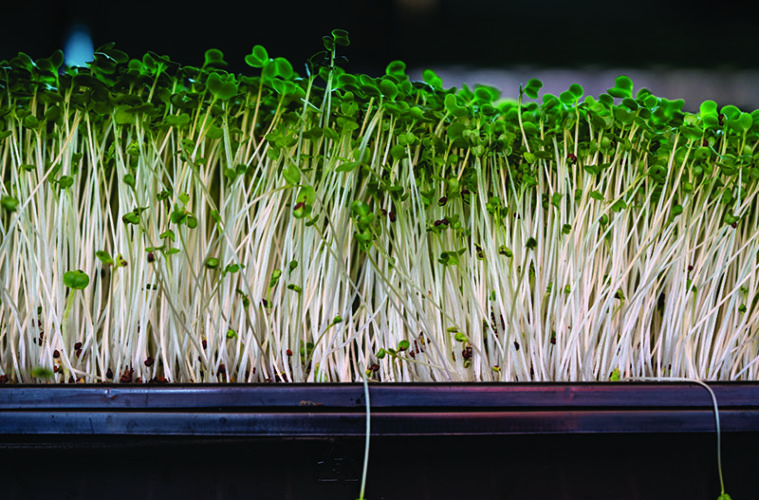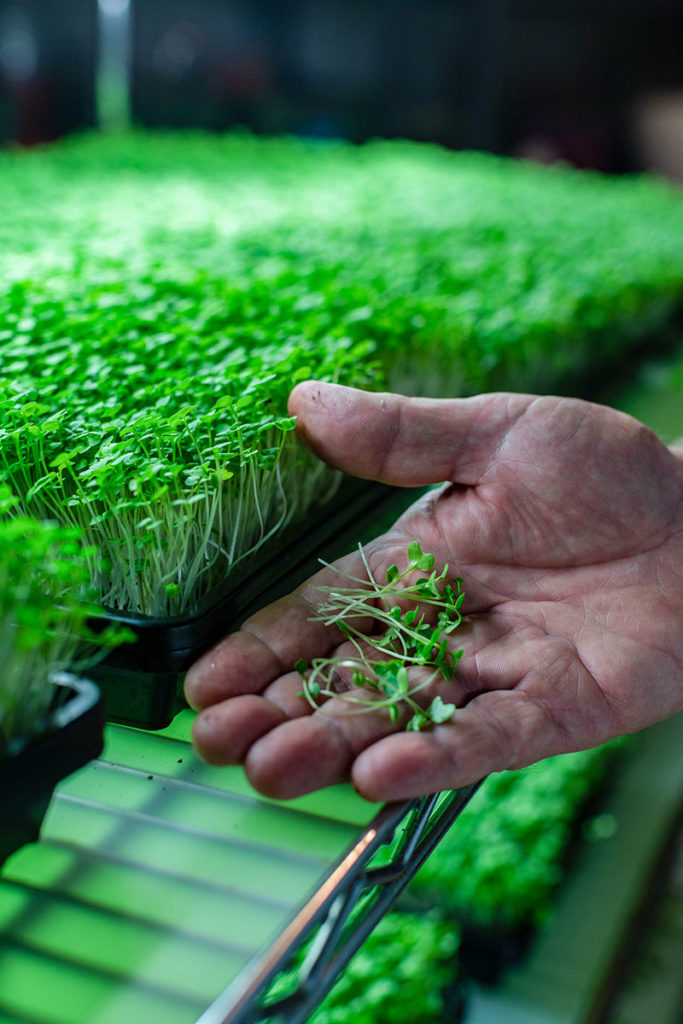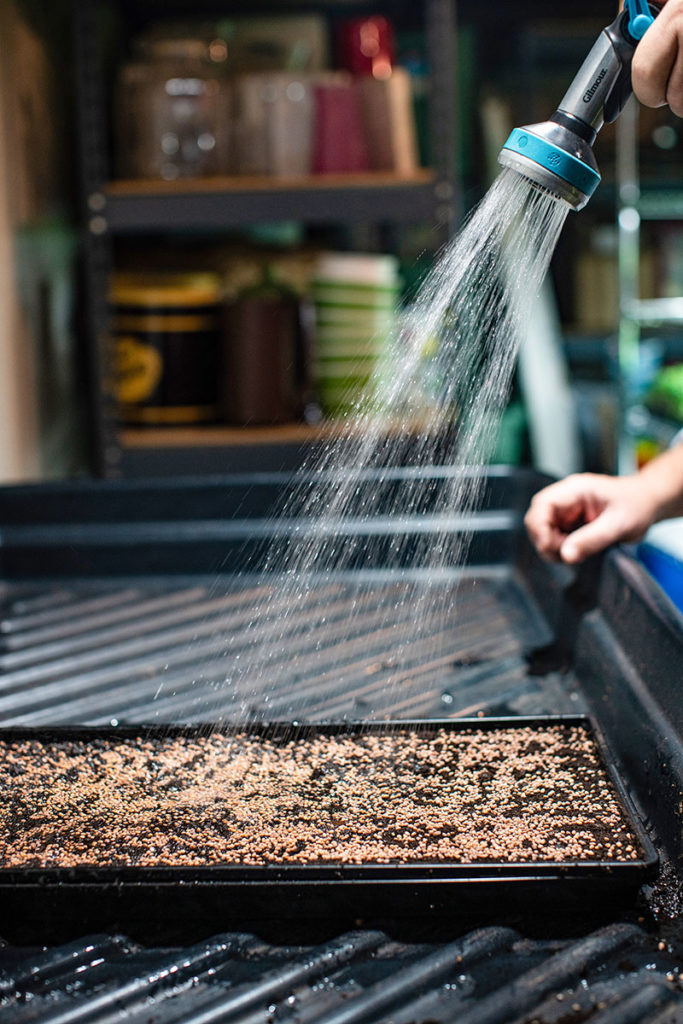Last year, after Bob Doyle, owner of North Shore MicroFresh microgreens company, retired from a career in tech, he knew he wanted to try something a whole lot different.
“I was looking for a new motivation—something to turn me on again,” he recalls. “Owning my own business, something that’s hyperlocal, good for people, good for the planet, fun. That appealed to me.”

He liked reading about hydroponics and the process of growing food in space for journeys to Mars. Perhaps indoor farming could check his boxes? He experimented with growing greens in vertical gardens known as “farm walls,” but became frustrated with the months of waiting between planting and harvest. With further research, he hit on microgreens—young versions of regular greens that are harvested before they sprout their first “true leaves” of the type that feed the plant through photosynthesis.
“I settled on microgreens because it’s simple, it’s really healthy, and it’s got a faster turn-around from planting the seed to harvesting”—about 10 days, he says. “There’s a wide variety of microgreens that you can grow; there are dozens of them.”

Getting started in greens
He spent weeks studying, experimenting, and watching YouTube videos to figure out how to grow microgreens. Within months he had launched North Shore MicroFresh and begun delivering microgreens to homes and businesses around the region.
His first customers were friends and family, and his client base quickly expanded through word-of-mouth and social media engagement. He began delivering to homes, bringing 2 oz., 8 oz., and 1 lb. containers weekly to the coolers he asks customers to leave on their porches. Most customers buy 2 oz., which last a long time in the refrigerator and can add flavor to any type of dish as a garnish.
“A little goes a long way—there’s so much taste that you don’t really need that much to enjoy it,” Doyle explains.
Restaurant owners know of the flavor-punch of microgreens and often use them to bring both taste and visual appeal to dishes. As the business was getting established, Doyle began picking up restaurant clients such as Allie’s in Manchester and Tonno in Gloucester, only to have them disappear when the pandemic hit. It was an early setback for the growing brand, but it didn’t stop Doyle: He hopes to expand his restaurant clientele again now that dining is picking back up.
A business on the rise
As the business has expanded, Doyle has called in help from his family to make it work. His wife Florence helps him bag up produce on harvest days, and his daughter has chastised him so much for ignoring the power of Instagram that he is now mounting a big online marketing push.
Marketing will be key to his plans to expand the product line, which he calls “top secret at the moment.” With a desire to move back into restaurants while also broadening his base of residential customers, he’s making plans to scale up his operations.
One advantage of microgreens is how little space they occupy, which means he has plenty of room to grow more. He currently produces about 15 pounds of microgreens a week, which he cultivates in two racks in his basement under grow lights. Each rack has five shelves and measures 48” x 20”, which means that he grows all of his company’s product in an 8’ x 3.5’ footprint.
Another advantage is how few resources this type of cultivation uses, which has allowed him to create an Earth-friendly business. He uses little water and recycles all his used soil with Manchester composting company Black Earth. He uses power generated by wind turbine and makes deliveries in an electric car.
All these advantages and others add up to a thriving and enjoyable semi-retirement business for one North Shore man—and a great, new produce option for local residents and restaurants.
“It’s been a real joy to go up the learning curve and figure out how to be an indoor farmer,” says Doyle. “I like that I’m using my hands to actually make something. I like that it’s a good, healthy product. I like meeting people on the North Shore. I like that it’s clean and local.”
CONTACT nsmicrofresh.com




